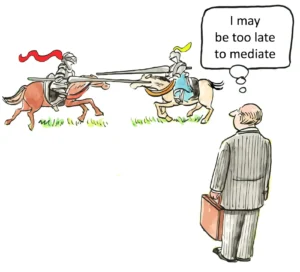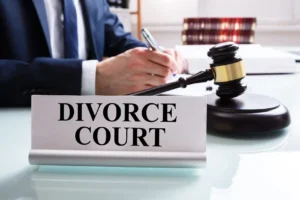Double Jeopardy: When You Can’t Be Tried Twice
The concept of double jeopardy stands as a cornerstone of the American criminal justice system, providing a crucial safeguard against repeated prosecutions for the same offense. Enshrined in the Fifth Amendment to the United States Constitution, this legal principle prohibits the government from subjecting an individual to multiple criminal prosecutions or punishments for a single crime. The double jeopardy clause states that no person shall “be subject for the same offence to be twice put in jeopardy of life or limb,” a protection that has been interpreted broadly to cover various aspects of criminal proceedings.
At its core, double jeopardy serves several essential purposes within the legal system. It protects individuals from the psychological, emotional, and financial strain of facing repeated trials for the same alleged offense. This protection limits the government’s ability to use its vast resources to wear down a defendant through multiple prosecutions. Additionally, double jeopardy promotes finality in criminal proceedings, ensuring that once a matter has been decided, it remains resolved, thus providing closure for all parties involved.
The scope of double jeopardy protection extends to three primary scenarios: preventing a second prosecution for the same offense after an acquittal, prohibiting a second prosecution for the same offense after a conviction, and barring multiple punishments for the same offense. These protections apply at both the federal and state levels, as the Supreme Court has incorporated the Double Jeopardy Clause against the states through the Fourteenth Amendment’s Due Process Clause.
Understanding when jeopardy “attaches” in a criminal proceeding is crucial for determining when double jeopardy protections begin to apply. In jury trials, jeopardy attaches when the jury is empaneled and sworn in. For bench trials, jeopardy attaches when the first witness is sworn in. This timing is significant because it marks the point at which a defendant’s constitutional protections against double jeopardy become active.
However, the application of double jeopardy is not always straightforward, and there are several important exceptions and nuances to consider. One such exception is the “dual sovereignty” doctrine, which allows separate sovereigns (such as the federal government and a state government, or two different state governments) to prosecute an individual for the same conduct without violating the double jeopardy clause. This doctrine is based on the principle that each sovereign has the right to enforce its own laws.
The concept of mistrial plays a significant role in double jeopardy considerations. If a mistrial is declared with the defendant’s consent or due to a “manifest necessity,” such as a hung jury, the prosecution may generally retry the case without violating double jeopardy protections. However, if a mistrial is declared without the defendant’s consent and without a manifest necessity, double jeopardy may bar a retrial.
Another important aspect of double jeopardy is its application to plea bargains. When a defendant enters a guilty plea as part of a plea agreement, jeopardy attaches at the moment the court accepts the plea. This means that if the plea is later withdrawn or vacated, the defendant cannot be prosecuted again for the same offense, except in certain circumstances where the defendant has breached the plea agreement.
The interpretation of what constitutes the “same offense” for double jeopardy purposes has been a subject of significant legal debate and refinement over the years. The Supreme Court established the “Blockburger test” in Blockburger v. United States, which states that two offenses are considered the same for double jeopardy purposes if each statutory provision does not require proof of a fact that the other does not. This test helps courts determine whether multiple charges arising from the same conduct are permissible under the double jeopardy clause.
It’s important to note that double jeopardy protections apply only to criminal proceedings. Civil cases, even those arising from the same set of facts as a criminal case, are not subject to double jeopardy limitations. This means that an individual acquitted in a criminal trial could still face civil litigation related to the same incident. A classic example of this is the O.J. Simpson case, where Simpson was acquitted in criminal court but later found liable in a civil wrongful death suit.
The application of double jeopardy to juvenile proceedings has been a topic of legal consideration. In Breed v. Jones, the Supreme Court held that the double jeopardy clause applies to juvenile delinquency proceedings. This decision ensures that juveniles receive the same constitutional protections against multiple prosecutions as adults, reflecting the Court’s recognition of the serious consequences that can result from juvenile adjudications.
One area where double jeopardy protections intersect with evolving legal and technological landscapes is in the realm of cybercrime. As digital offenses often cross jurisdictional boundaries, questions arise about how double jeopardy applies to crimes committed in cyberspace. Courts have had to grapple with issues such as whether prosecutions in multiple jurisdictions for the same online conduct violate double jeopardy principles, especially when the crime has effects in multiple locations.
The concept of collateral estoppel, also known as issue preclusion, is closely related to double jeopardy and can provide additional protections for defendants. This legal doctrine prevents the relitigation of factual issues that have been definitively decided in a previous trial. For example, if a defendant is acquitted of a crime based on an alibi defense, the government may be barred from contesting that alibi in a subsequent prosecution for a related offense arising from the same incident.
Double jeopardy protections can also impact the strategy employed by both prosecutors and defense attorneys. Prosecutors must carefully consider how to structure their charges and present their cases, knowing that an acquittal on one charge may preclude future prosecutions for related offenses. Defense attorneys, on the other hand, may strategically use double jeopardy principles to protect their clients from multiple prosecutions or to challenge the validity of certain charges.
The intersection of double jeopardy and international law presents unique challenges in an increasingly globalized world. While the U.S. Constitution’s double jeopardy protections do not generally extend to prosecutions by foreign governments, many international treaties and agreements include provisions similar to double jeopardy to prevent multiple prosecutions across national borders. Understanding these international dimensions is crucial for cases involving extradition or transnational crimes.
In recent years, there has been ongoing debate about the scope and application of double jeopardy protections, particularly in light of advances in forensic science and DNA evidence. Some argue that strict adherence to double jeopardy principles may sometimes prevent justice from being served when new, compelling evidence emerges after an acquittal. This has led to discussions about potential reforms or exceptions to double jeopardy rules in certain circumstances, although such proposals are often met with strong opposition from civil liberties advocates.
The role of appeals in the context of double jeopardy is another important consideration. Generally, when a conviction is overturned on appeal due to insufficient evidence, double jeopardy bars a retrial. However, if a conviction is overturned due to trial errors or other procedural issues, a retrial is typically permitted. This distinction highlights the balance between protecting defendants from repeated prosecutions and ensuring that procedural fairness is maintained throughout the judicial process.
The application of double jeopardy to complex, multi-count indictments can be particularly challenging. In cases involving multiple related charges, courts must carefully analyze each count to determine whether separate prosecutions or punishments are permissible under double jeopardy principles. This analysis often involves a detailed examination of the elements of each offense and the specific facts alleged in the indictment.
Another area where double jeopardy considerations come into play is in the context of administrative proceedings and subsequent criminal prosecutions. While administrative sanctions are generally not considered criminal punishments for double jeopardy purposes, there are situations where the line between administrative and criminal penalties can blur. Courts have had to address whether certain administrative penalties are so punitive in nature that they trigger double jeopardy protections against subsequent criminal prosecution.
The concept of continuing offenses presents unique challenges in the application of double jeopardy principles. For crimes that occur over an extended period, such as conspiracy or ongoing fraud schemes, courts must determine at what point jeopardy attaches and whether multiple prosecutions for different time periods or aspects of the ongoing crime are permissible. This analysis often requires a careful examination of the specific statutory language defining the offense and the particular facts of the case.
In the realm of white-collar crime, double jeopardy issues can become particularly complex due to the often intricate nature of financial crimes and the potential for multiple, related offenses. Prosecutors must carefully structure their charges to avoid double jeopardy problems while still addressing the full scope of alleged criminal conduct. This balancing act often requires a nuanced understanding of both criminal law and complex financial regulations.
The intersection of double jeopardy and plea negotiations is an area of significant practical importance in criminal law. Defendants and their attorneys must carefully consider the implications of plea agreements on potential future prosecutions. In some cases, a plea to a lesser offense may provide protection against prosecution for more serious related charges, while in other situations, the specific terms of a plea agreement may leave the door open for additional charges.
The application of double jeopardy principles to corporate criminal liability raises interesting questions about the nature of legal personhood and criminal responsibility. While corporations can be prosecuted for crimes, the extent to which double jeopardy protections apply to corporate entities versus individual officers or employees involved in the alleged criminal conduct is an area of ongoing legal development.
In cases involving co-defendants, the application of double jeopardy can become particularly intricate. An acquittal or conviction of one defendant does not necessarily bar the prosecution of co-defendants, even if they were alleged to have participated in the same criminal act. However, issues of collateral estoppel may come into play, potentially limiting the government’s ability to relitigate certain factual issues in subsequent trials.
The role of jury nullification in relation to double jeopardy presents interesting legal and philosophical questions. While jury nullification – the practice of a jury acquitting a defendant despite clear evidence of guilt – is a recognized phenomenon in the American legal system, it raises complex issues when considered in light of double jeopardy protections. An acquittal resulting from jury nullification still triggers double jeopardy protections, preventing retrial even if the acquittal was contrary to the evidence presented.
The concept of lesser included offenses is closely tied to double jeopardy principles. Generally, a defendant cannot be convicted of both a greater offense and a lesser included offense based on the same conduct, as this would constitute multiple punishments for the same crime. However, determining what constitutes a lesser included offense can be complex and may vary depending on the specific statutory definitions and the facts of the case.
In the context of federal and state prosecutions, the interplay between double jeopardy and federalism principles can create complex legal scenarios. While the dual sovereignty doctrine allows for separate federal and state prosecutions for the same conduct, there are Department of Justice policies (such as the Petite Policy) that aim to limit successive prosecutions except in cases of substantial federal interest. Understanding these policies and their application is crucial for both prosecutors and defense attorneys navigating potential multi-jurisdictional prosecutions.
The application of double jeopardy to sentence enhancements and recidivism statutes has been a subject of legal debate. Courts have generally held that using prior convictions to enhance sentences for subsequent offenses does not violate double jeopardy, as the enhanced sentence is viewed as a stiffer penalty for the new crime rather than an additional punishment for the previous offense. However, the specific application of these principles can vary depending on the particular statutory scheme and the circumstances of the case.
In conclusion, the principle of double jeopardy stands as a fundamental protection in the American criminal justice system, safeguarding individuals against repeated prosecutions and multiple punishments for the same offense. While its core concept may seem straightforward, the practical application of double jeopardy involves numerous complexities and nuances. From determining when jeopardy attaches to navigating the intricacies of multi-jurisdictional prosecutions, understanding double jeopardy requires a deep dive into constitutional law, criminal procedure, and the evolving landscape of criminal justice.
As society and technology continue to evolve, new challenges in applying double jeopardy principles are likely to emerge. Issues such as cybercrime, international law enforcement cooperation, and advances in forensic science will continue to test the boundaries of traditional double jeopardy doctrines. Legal professionals, policymakers, and scholars must remain vigilant in ensuring that this crucial constitutional protection adapts to meet the demands of a changing world while maintaining its core purpose of protecting individual rights and promoting fairness in the criminal justice system.
Ultimately, the principle of double jeopardy reflects fundamental values of justice, fairness, and the limits of government power. It serves not only to protect individuals from the hardships of repeated prosecutions but also to maintain public confidence in the integrity and finality of the judicial process. As such, it remains an essential component of the checks and balances that define the American legal system, continually shaping the administration of justice and the protection of individual rights in the face of evolving legal challenges.
Website Citations:
- https://www.law.cornell.edu/wex/double_jeopardy
- https://ncpro.sog.unc.edu/manual/104-1
- https://en.wikipedia.org/wiki/Double_jeopardy
- https://www.justia.com/criminal/procedure/double-jeopardy/
- https://www.findlaw.com/criminal/criminal-rights/the-concept-of-double-jeopardy-background.html
- https://www.findlaw.com/criminal/criminal-rights/when-double-jeopardy-protection-applies.html
Citations:
https://www.wiley.law/pressrelease-Supreme-Court-Agrees-to-Hear-Wiley-Pro-Bono-Case-Involving-Double-Jeopardy-Clause
https://www.wiley.law/pressrelease-Wiley-Secures-Supreme-Court-Victory-in-Double-Jeopardy-Case
https://www.saponelaw.com/blog/2022/07/the-protections-and-limits-of-a-double-jeopardy-defense/
https://www.goldmanwetzel.com/blog/what-is-double-jeopardy/




















